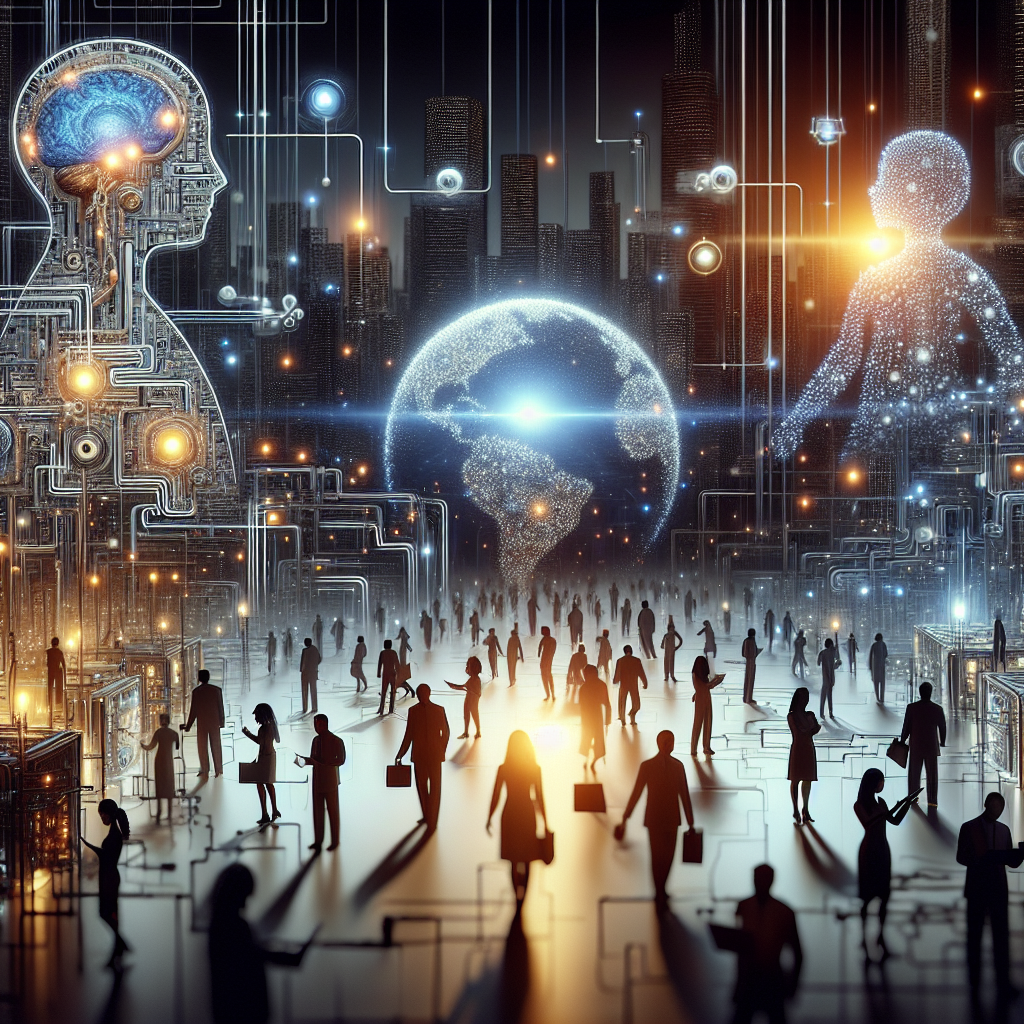The Impact of AGI on the Workforce: How AI is Reshaping the Job Market
Artificial General Intelligence (AGI) is a rapidly advancing field of technology that has the potential to revolutionize the way we work and live. AGI refers to machines that possess the ability to perform any intellectual task that a human can do. This includes reasoning, problem-solving, learning, and understanding natural language. While AGI is still in its early stages of development, its impact on the workforce is already being felt.
In this article, we will explore the ways in which AGI is reshaping the job market and the implications it has for workers in various industries. We will also discuss the challenges and opportunities that AGI presents for businesses and society as a whole.
The Rise of AGI and its Impact on Jobs
AGI has the potential to automate a wide range of tasks that are currently performed by humans. This includes everything from data analysis and customer service to creative work like writing and design. As AGI becomes more advanced and widespread, many jobs that are currently performed by humans may become obsolete.
According to a report by the McKinsey Global Institute, up to 800 million jobs worldwide could be automated by 2030. This represents around 30% of the global workforce. While some new jobs will be created as a result of AGI, the transition may be difficult for many workers who find themselves displaced by automation.
In particular, low-skilled workers are likely to be most affected by the rise of AGI. Jobs that involve routine tasks or manual labor are at the highest risk of being automated. This includes jobs in industries like manufacturing, transportation, and retail.
On the other hand, jobs that require creativity, problem-solving, and emotional intelligence are less likely to be automated by AGI. This includes roles in healthcare, education, and the arts. However, even these jobs are not immune to the impact of AGI. For example, AI-powered tools are already being used to assist doctors in diagnosing diseases and teachers in creating personalized learning plans for students.
The Challenges and Opportunities of AGI
While the rise of AGI presents many challenges for workers, it also offers a number of opportunities for businesses and society as a whole. AGI has the potential to increase productivity, drive innovation, and improve the quality of products and services. By automating routine tasks, AGI can free up human workers to focus on more creative and strategic work.
For businesses, AGI can help reduce costs, increase efficiency, and gain a competitive advantage in the market. By using AI-powered tools to analyze data and make decisions, companies can make faster and more informed choices. This can lead to better outcomes for customers and increased profits for businesses.
In addition, AGI can help address some of the biggest challenges facing society today. For example, AI-powered tools are being used to improve healthcare outcomes, fight climate change, and enhance education opportunities for all. By leveraging the power of AGI, we can create a more sustainable and equitable world for future generations.
FAQs about the Impact of AGI on the Workforce
Q: Will AGI lead to mass unemployment?
A: While AGI has the potential to automate many jobs, it is unlikely to lead to mass unemployment. New jobs will be created as a result of AGI, and workers can be retrained to perform new tasks that are not easily automated.
Q: What can workers do to prepare for the rise of AGI?
A: Workers can prepare for the rise of AGI by developing skills that are difficult to automate, such as creativity, problem-solving, and emotional intelligence. Continuous learning and adaptation will be key to staying relevant in an increasingly automated workforce.
Q: How can businesses leverage AGI to improve their operations?
A: Businesses can leverage AGI to improve their operations by investing in AI-powered tools that can automate routine tasks, analyze data, and make decisions. By using AGI to augment human work, companies can increase productivity and drive innovation.
Q: What role does government play in regulating AGI?
A: Governments play a crucial role in regulating AGI to ensure that it is used ethically and responsibly. Regulations can help protect workers from job displacement, safeguard consumer privacy, and prevent the misuse of AI-powered tools.
In conclusion, the rise of AGI is reshaping the job market in profound ways. While the impact of AGI on the workforce is likely to be significant, it also offers many opportunities for businesses and society as a whole. By preparing for the changes that AGI will bring and embracing the potential of this technology, we can create a future in which humans and machines work together to achieve greater outcomes for all.

